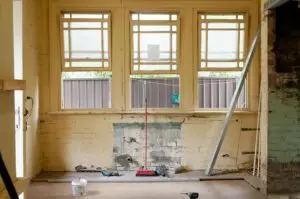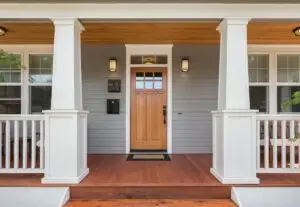Negotiating low offers can pose a distinct challenge to FSBO sellers. Unlike sellers who rely on real estate agents, FSBO sellers must navigate these negotiations on their own. However, with the right strategies, you can confidently handle low offers and still achieve a favorable outcome.
This guide will walk you through the reasons buyers make low offers, how to assess those offers, and practical strategies to counter them effectively.
Understanding Why Buyers Make Low Offers
Low offers can be frustrating, but they often have a rationale behind them. Understanding the “why” can help you respond strategically.
Market Dynamics and Buyer Psychology
Buyers know that FSBO sellers typically lack professional representation, which they may see as an opportunity to negotiate harder. Additionally, in a buyer’s market—where supply exceeds demand—low offers become more common as buyers feel they have leverage.
Common Buyer Tactics in FSBO Transactions
Some buyers intentionally lowball to test your limits, hoping you’ll counter with a lower price than your original asking price. Others might base their offer on perceived flaws in your home or market conditions, whether accurate or not.
Assessing the Offer Objectively
Before reacting emotionally to a low offer, take a step back and evaluate its merits.
How to Evaluate if a Low Offer Is Reasonable
Ask yourself:
- Does the offer align with recent comparable sales (comps) in your neighborhood?
- Are there valid reasons behind the buyer’s lower valuation, such as necessary repairs or outdated features?
Comparing the Offer to Your Target Price
Your initial price should already account for market conditions, comps, and the home’s unique features. If a buyer’s offer falls significantly short of this, determine whether there’s room for compromise or if it’s simply too low to consider.
Strategies for Responding to Low Offers
A low offer isn’t necessarily a dealbreaker. It’s often just a starting point for negotiations.
Counteroffer Techniques for FSBO Sellers
Rather than outright rejecting a low offer, respond with a counteroffer that reflects your minimum acceptable price. Use the counteroffer to anchor the negotiation in your favor.
Leveraging Multiple Offers
If you have more than one interested buyer, let them know they’re competing. This can drive offers closer to (or even above) your asking price.
When (and How) to Say No
Sometimes, the best move is to walk away.
Knowing When to Walk Away
If a buyer is unwilling to meet your minimum price or insists on unreasonable demands, it may not be worth pursuing the deal. Trust your pricing strategy and keep looking for serious buyers.
Setting Boundaries Without Alienating Buyers
When rejecting an offer, maintain a professional tone. Thank the buyer for their interest, explain why the offer isn’t acceptable, and invite them to submit another proposal if they’re willing to reconsider.
Negotiation Tips for FSBO Sellers
Successful negotiation relies on preparation and effective communication.
Communicating Effectively Without an Agent
Clear, professional communication is key. Respond to offers promptly, use data to back up your pricing, and be open to reasonable discussions.
Using Data and Facts to Justify Your Price
Share recent comps, appraisal reports, or details about recent upgrades to demonstrate the value of your home. Facts are harder to dispute and can help persuade buyers to increase their offer.
Concessions That Work in Your Favor
Sometimes, making small concessions can help close the deal without sacrificing too much.
Offering Incentives Instead of Price Cuts
Consider offering to cover part of the buyer’s closing costs, include appliances, or expedite the closing timeline. These perks may be more appealing than a lower price.
Non-Monetary Negotiation Points
Flexibility on the move-in date or including a home warranty can sweeten the deal without reducing your net proceeds.
Preventing Low Offers Before They Happen
The best way to handle low offers is to minimize the likelihood of receiving them in the first place.
How Pricing Your Home Correctly Reduces Lowball Offers
Price your home competitively from the start by researching comps and understanding current market conditions. Overpriced homes attract fewer serious buyers, which can lead to more lowball offers.
Crafting a Compelling FSBO Listing
A well-crafted listing with high-quality photos, a detailed description, and a strong online presence attracts motivated buyers who are less likely to undervalue your property.
FAQs: Common Questions from FSBO Sellers
Why do FSBO sellers often receive low offers?
Buyers may assume FSBO sellers lack negotiation skills or are eager to sell quickly, making them more likely to test the waters with a low offer.
How can I counter a low offer without losing the buyer?
Respond with a counteroffer that demonstrates your home’s value and consider offering small concessions to bridge the gap.
What should I do if I keep getting low offers?
Reevaluate your pricing strategy, ensure your listing highlights the home’s value, and consider gathering feedback from prospective buyers.
Conclusion
Negotiating low offers as a FSBO seller requires preparation, patience, and strategy. By understanding buyer behavior, evaluating offers objectively, and mastering negotiation techniques, you can turn even lowball offers into opportunities to sell your home on favorable terms. For more tips and tools to help you navigate your FSBO journey, explore the resources available at HomeRise.











